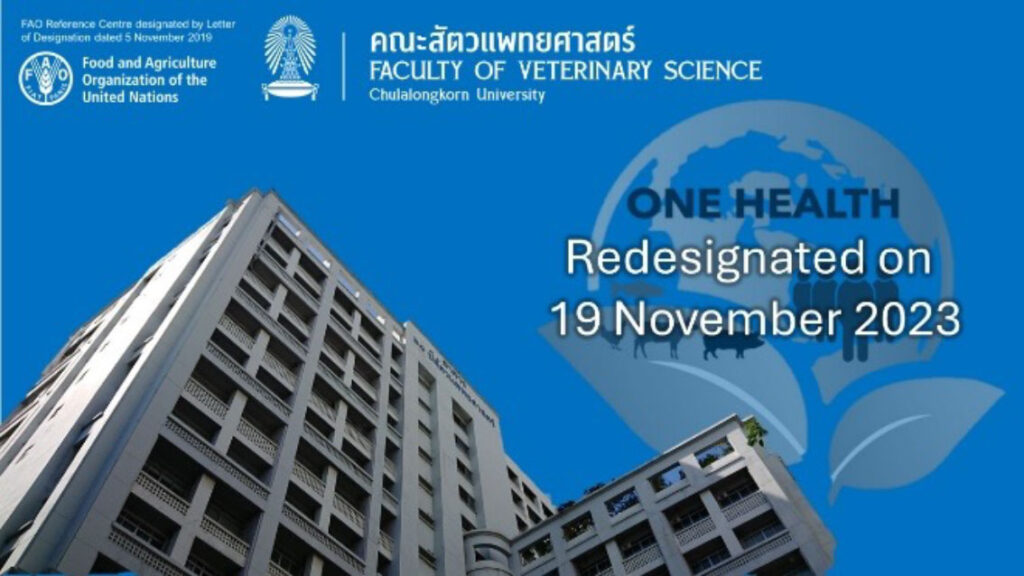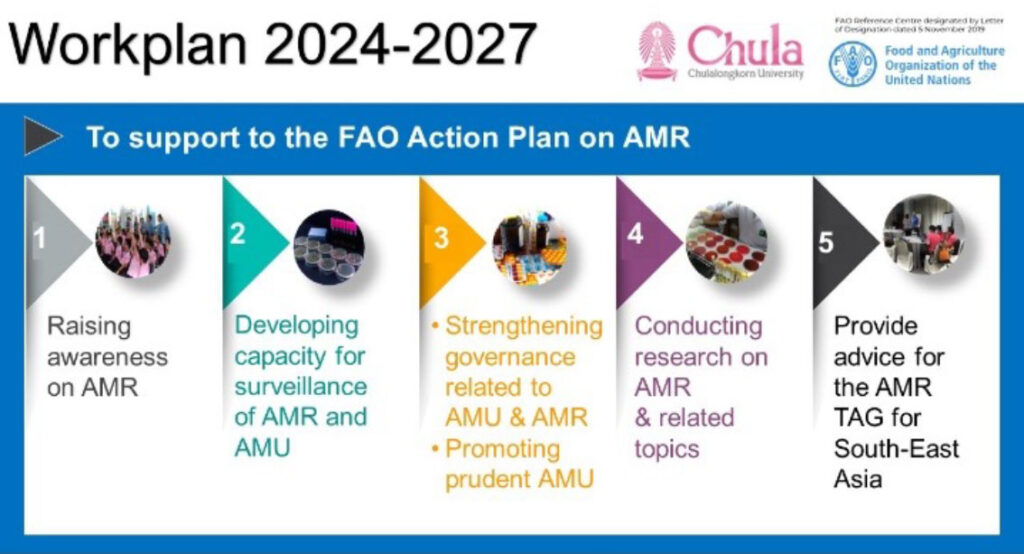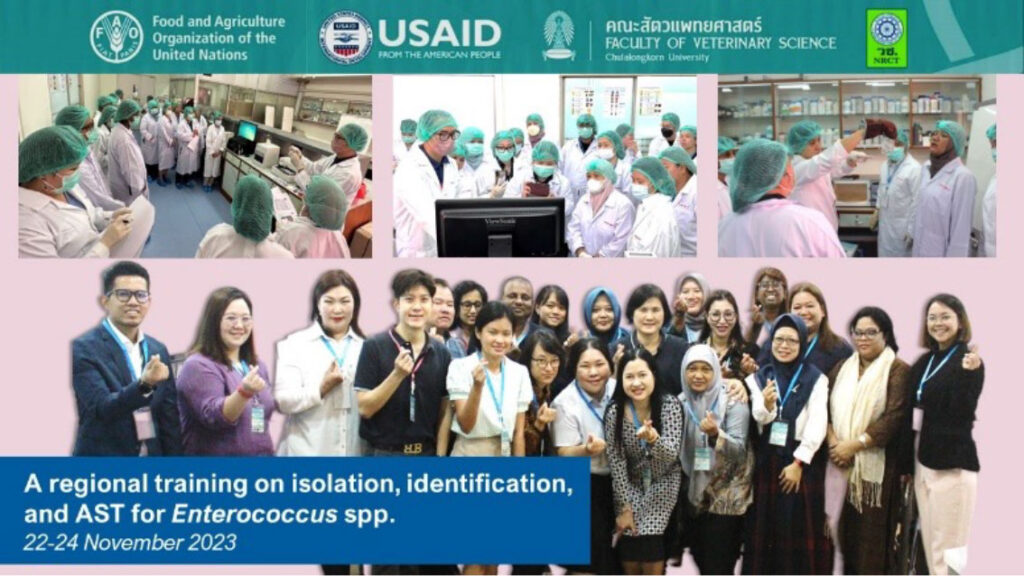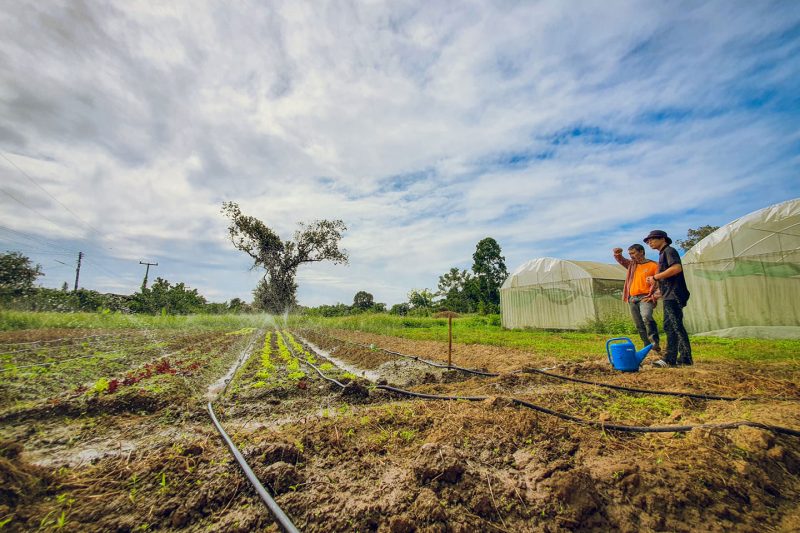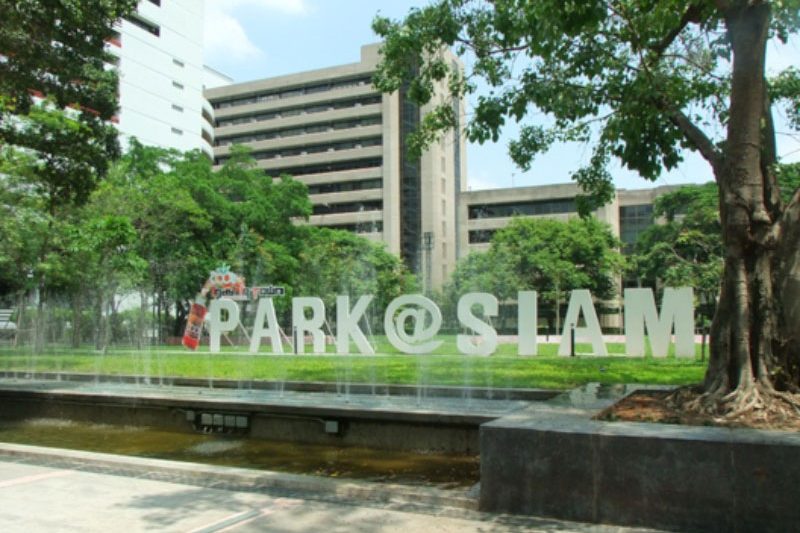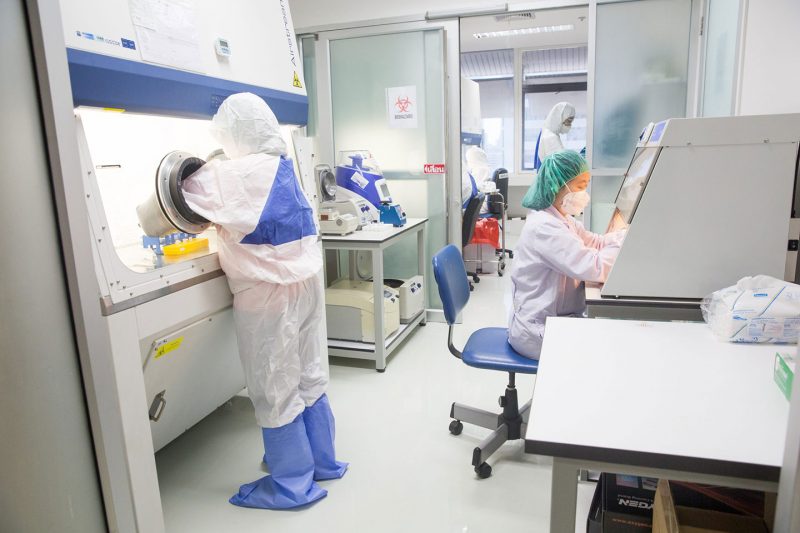Capacity building and strengthening of antimicrobial resistance laboratory and surveillance in agri-food system in Asia
“Inadequate high-quality national and regional AMR data impedes the progress in AMR controlling and containment in Asia. Thailand FAO Reference Centre for AMR at the Faculty of Veterinary Science, Chulalongkorn University has progressively built capacity for AMR laboratory and surveillance towards a sustainable AMR surveillance in agri-food system in Asia with key planned activities aligned with FAO’s Action Plan on AMR. This aims to assist countries and regions to generate high-quality AMR data for tailoring evidence-based implementation and strategies for effective and meaningful AMR management.
In 2023-2024, the continued momentum included organizing AMR laboratory assessment, external quality assurance programs and regional hands-on training on target bacteria with limited national and regional AMR data. The outputs direct the prioritized actions for the progressive improvement, leading to Post-ATLASS and Post-PTAST missions. The Reference Centre synergizes the activities to improve the operationalization of AMR data generation in the region in collaboration with FAO-RAP.”
Antimicrobial resistance (AMR) disproportionately impacts low- and middle-income countries due to poverty, inequality and unhygienic public utility, of which Asia is a global hotspot with the highest AMR prevalence. AMR can emerge and spread from farming and agriculture to human populations, endangering global security, economic prosperity and food security. High-quality data is essential for tailoring evidence-based interventions and informing policy decisions and public health strategies for AMR controlling and containment. However, Asia appears to have many LMICs with limited capacity to produce AMR data.
Since the designation in 2019, Thailand FAO Reference Centre for AMR at the faculty of veterinary science, Chulalongkorn university has been an active player in tackling AMR using a One Health approach with key planned activities aligned with FAO’s Action Plan on AMR. The Reference Centre contributes to the progressively building capacity towards a sustainable AMR surveillance system in agri-food sectors, providing technical expertise and leadership to deliver sustainable solutions. Its goal is to assist countries and regions to generate high-quality AMR data for creating appropriate and timely corrective actions. Initiatives started in Southeast Asia and expanded to cover Asia and the Pacific.
Since 2019, with primary funding from USAID and the Fleming Fund, it has conducted AMR laboratory assessment using FAO ATLASS in 28 laboratories from 14 countries since. The assessment results direct the prioritized actions for the progressive improvement. Efforts have been made on 17 regional training workshop series, 13 proficiency testing for antimicrobial susceptibility testing and supporting the development of national AMR surveillance in 18 countries.
In 2023-2024, Thailand Reference Centre has continued the momentum by providing:
- AMR laboratory assessment in Nepal, Lao PDR and Cambodia. Gaps and challenges were identified with the recommendations provided to conduct Post-ATLASS missions to improve AMR laboratory and surveillance;
- external quality assurance (EQA) programsto strengthen AMR data quality, including two Proficiency Testing for Antimicrobial Susceptibility Testing (PTAST) programs with 40 laboratories from 12 countries in PTAST2024 and two EQAs for Asia (EQAsia) with 38 laboratories from 14 countries in the latest EQA8. The performance of participating laboratories indicated technical support required. This resulted in Post-PTAST missions including consultation meetings for low-performance laboratories and training webinars;
- Regional hands-on training on “Isolation, Identification, and AST for Enterococcus spp.”. It aimed to build the knowledge and skill among laboratory staff and to increase AMR data from target bacteria with inadequate AMR surveillance data.
The Reference Center has coordinated the activities to improve the operationalization of AMR data generation in the region with close collaboration with FAO-RAP and Denmark FAO Reference Centre for AMR. The activities support UN SDGs 1, 2, 3, 8, 12 and 17 as well as FAO’s collaboration with its quadripartite partners – WHO, WOAH, and UNEP – to expedite efforts to combat AMR at all levels and in all sectors. The Reference Centre is currently recognized as a member of the One Health High-Level Expert Panel (OHHLEP) and the Quadripartite Technical Group on Antimicrobial Resistance and Use Integrated Surveillance (QTG-AIS).
[ https://www.fao.org/antimicrobial-resistance/resources/reference-centres/en/ ]
[ http://www.cuvetamr.vet.chula.ac.th/ ]
By Faculty of Veterinary Science, Chulalongkorn University
Others

